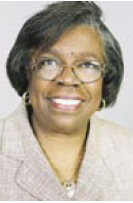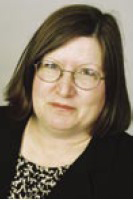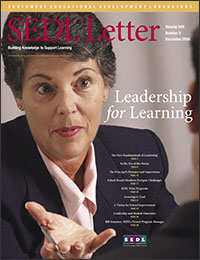SEDL Wins Proposals to Help Texas and Southeastern States Meet NCLB Goals
The Southwest Educational Development Laboratory (SEDL) has received two 5-year awards to help low-performing schools meet the goals of the No Child Left Behind Act (NCLB). The U.S. Department of Education made the awards through cooperative agreements with SEDL to create two comprehensive centers: one for Texas and one for the Southeast, which includes the states of Alabama, Georgia, Louisiana, Mississippi, and South Carolina.
“SEDL is excited about establishing new comprehensive centers,” said Wes Hoover, SEDL’s president and CEO. “The centers’ overall goal is to help ensure that each state they serve has an educational system with the capacity and commitment to eliminate achievement gaps. We look forward to helping educators fulfill their commitments to NCLB, improve student achievement, and meet new challenges created by the devastation of Hurricane Katrina.”
 SEDL will work closely with the departments of education of each state to address their priorities. The two centers will provide training, technical assistance, and high-quality, research-based instructional resources.
SEDL will work closely with the departments of education of each state to address their priorities. The two centers will provide training, technical assistance, and high-quality, research-based instructional resources.
Hoover announced that Marie Kaigler will lead the Southeast comprehensive center and K. Victoria Dimock will lead the Texas center. “Both Dr. Kaigler and Dr. Dimock have strong leadership and public school experience, which make them ideal candidates to lead the work of the centers,” he said.
Kaigler has been with SEDL for 8 years and was the program manager for the Southeast Assistance Comprehensive Center, which served the states of Alabama, Arkansas, Georgia, Louisiana, and Mississippi from 1995–September 30, 2005. Prior to joining the SEDL staff, Kaigler held various positions in the New Orleans public school system, including teacher, assistant principal, mathematics supervisor, and principal.
 Dimock previously led SEDL’s Eisenhower Southwest Consortium for the Improvement of Mathematics and Science Teaching and the SouthCentral Regional Technology in Education Consortium, both of which served Texas educators. Before coming to SEDL in 1991, Dimock served as an education specialist at the Region IX Education Service Center, a coordinator of a program for gifted students, and a K–12 teacher.
Dimock previously led SEDL’s Eisenhower Southwest Consortium for the Improvement of Mathematics and Science Teaching and the SouthCentral Regional Technology in Education Consortium, both of which served Texas educators. Before coming to SEDL in 1991, Dimock served as an education specialist at the Region IX Education Service Center, a coordinator of a program for gifted students, and a K–12 teacher.
The U.S. Department of Education will fund a total of 21 comprehensive centers. Sixteen regional centers will provide technical assistance to states within defined geographic boundaries, while five content centers will provide expert assistance to benefit schools and districts nationwide on key issues related to the goals of NCLB.
Next Article: Learning to Lead: Educators Use Their Summers for Research as Part of SEDL's Fellowship Program

